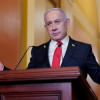The case against the Islamic Military Alliance

Two days before Bangladesh celebrated its 44th Victory Day, Saudi Arabia's deputy crown prince and defence minister, Mohammed bin Salman, announced that he had conscripted the military of our sovereign state into the service of the so-called 'Islamic Military Alliance'. The prince announced that 34 states had "joined" this coalition. For the sake of our sovereignty, security, and even religiosity, Bangladesh must withdraw from this alliance.
In what can only be described as a testimony to Saudi incompetence, immediately following the announcement, a number of countries declared they had agreed to no such thing. Speaking about the coalition, a senior official of the Pakistani Foreign Office was quoted as saying "We came to know about it through news reports". Malaysia and Lebanon have given statements to similar effect. The Government of Bangladesh has neither given such statement, nor has it made a public announcement about the country's participation.
It speaks volumes about the Saudi sense of entitlement that they did not even bother to secure the consent of sovereign states before announcing their membership in the 'Alliance'. Coupled with the overtly Arab-supremacist structure of the Saudi state, this entitlement does not bode well for the level of regard that will be shown for the lives of soldiers from non-Arab countries such as Bangladesh, who according to the Prince's announcement are to be placed under Saudi command. Doing so would unnecessarily risk Bangladeshi lives, and draw us into a sectarian fight that we have no part in.
Unlike Saudi Arabia, one of Bangladesh's founding principles is secularism, something that is enshrined in our Constitution. Any move by the state to join a military alliance that is founded on religious grounds, would therefore be of questionable legal standing. But setting legality aside, the alliance makes little sense. Its purported goal is to fight ISIS. Where Islamist militancy is the problem, how can an 'Islamic Military' be the solution? It is every bit as preposterous and ill-conceived as the 'war on terror' was.
Why then are the Saudis proposing this force? Because it is 'Islamic' only in name: in everything else it is Saudi. The headquarters will be in Riyadh, and the force will be under Saudi command. Conspicuous in their absence are Iran and Iraq – two large, important, Muslim majority states which would have been indispensable to any authentic fight against extremism – but which also happen to be Shi'ite majority. Their absence transparently betrays Saudi Arabia's sectarian vision for its 'Islamic' army, and serves to illustrate the dubious Islamic credentials of the House of Saud's military undertakings.
It is common knowledge that the Saudis have long exported a particularly intolerant interpretation of Islam under the banner of 'Wahhabism'. It is less well-known that Muhammad Ibn Abd al-Wahhab, whose scholarship the Saudis claim to extol, within his lifetime refused to endorse the plunderous military campaigns of his contemporary Saudi chieftain, Muhammad Ibn Saud. The scholar also forbade the deliberate destruction of property and the slaughter of civilians, a prohibition wholly violated when Ibn Saud's son, Abd al-Aziz Ibn Muhammad sacked the holy city of Karbala in 1801, slaughtering thousands of civilians, including women and children. The terror that ensued from this wanton massacre precipitated Mecca's surrender in 1803. That is how the Saudis came to control Islam's most holy site. What legitimacy then, does the House of Saud, which usurped control of Islam's holiest site by the slaughter of civilians, have to command a multinational Islamic army? The military history of this family has been anything but Islamic, even by the standards of the scholar who they claim their perversion of Islam is based on.
Saudi global influence rose with the price of oil in 1973. As oil prices have plummeted from a high of $105 as recently as July 2014, to under $36 per barrel in December 2015, Saudi foreign exchange reserves have nosedived, and are projected to keep declining. Permanently reduced spending capacity implies that the recruitment of migrant workers from Bangladesh will never return to earlier levels, whatever our government's response to Saudi military conscription.
On the issue of migrant workers, there is a wide-spread fear among the Bangladeshi middle class that refusing to participate in this sectarian military farce would somehow endanger the the livelihoods of the million or so Bangladeshi migrant workers who reside in the Kingdom. This perspective patronises our migrants as recipients of some form of Saudi charity. They are not. Rather, they are indispensable members of the Saudi economy.
Citizens of the Kingdom live off oil rents and are utterly dependent on Bangladeshis and other migrants for even the most basic services. That is why when Saudi Arabia imposed an immigration ban on Bangladesh in 2008, they did not expel existing workers, and it is why they cannot do so now. It is also why Indonesia and Pakistan, which have similarly large numbers of migrants in the Kingdom, have been able to state that they had not agreed to join the 'Alliance', despite the bungling Saudi prince's announcement to the contrary. Migrant Bangladeshis are productive workers, not hostages, and the military involvement of a sovereign Bangladesh must not be paid as ransom.
To the citizen, the conscription of our armed forces by a foreign power to wage its own sectarian war is a slap in the face of Bangladeshi sovereignty. To the religious, the violent and bigoted perversions of the faith that the Saudis would propagate using this force are an affront to the peaceful and tolerant religion that is Islam. And to the strategist, aligning oneself militarily with an incompetent, declining power, risking Bangladeshi lives and security is an insult to rationality. For all these reasons, Bangladesh must immediately extricate itself from this so called 'Islamic Military Alliance,' which is no such thing.
The writer is a PhD. candidate at the University of Sussex.

 For all latest news, follow The Daily Star's Google News channel.
For all latest news, follow The Daily Star's Google News channel. 








Comments